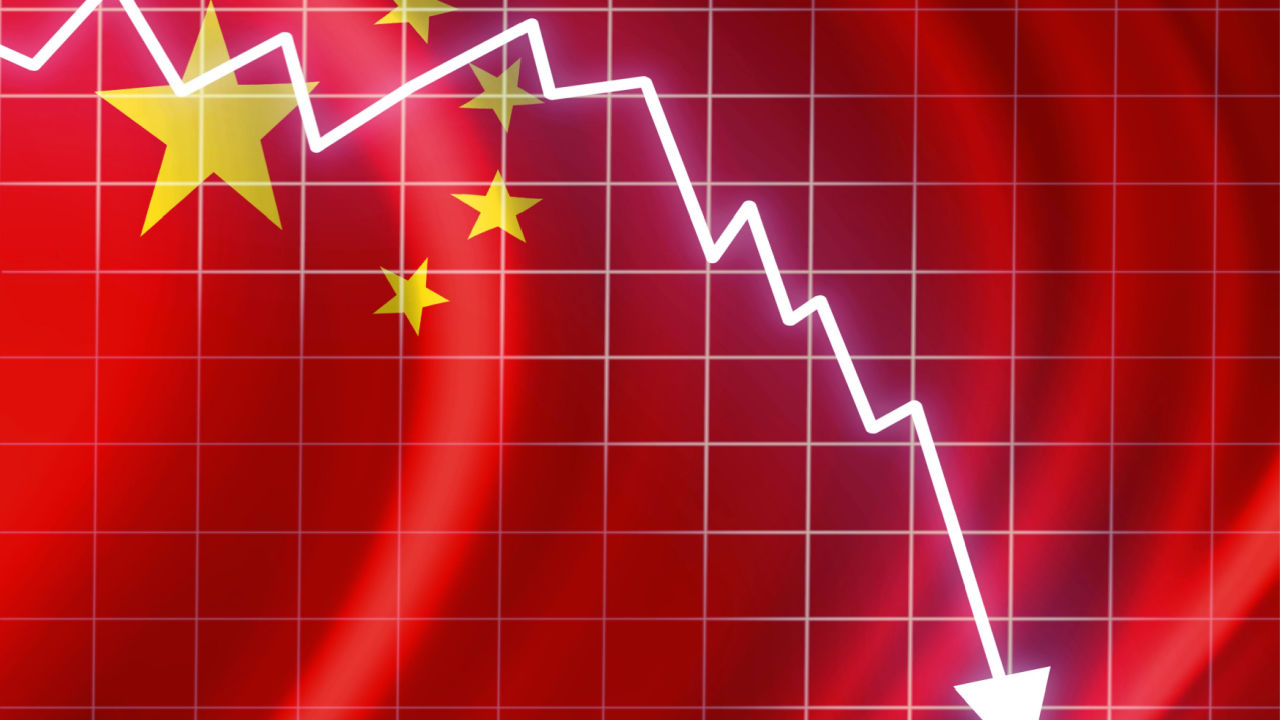
Inflation in China registered an increase of 0.1% year-over-year in April, according to numbers from the National Bureau of Statistics of the country, falling below expectations. Some analysts are already warning about the dangers of deflation, even calling on the Chinese government to deliver cash handouts in order to push consumer demand.
Low Inflation Numbers in China Worry Analysts
China, one of the biggest economies in the world, has registered its lowest inflation numbers in more than two years, according to data coming from the National Bureau of Statistics (NBS). The Consumer Price Index (CPI) registered an increase of 0.1% year-over-year, dropping from 0.7% registered in March.
The drop in prices was caused in part by a decline in food and beverages prices, which went from 2.4% in March to less than 1% in April. Core inflation, which does not include prices of food and beverages, rose 0.7% year-over-year. The numbers are below the expectations of the country for this year, established around a 3% ceiling that is not likely to be touched.
The numbers have been worrying analysts, who take them as a testament to the slow and rocky economic recovery of China after the coronavirus pandemic. However, Zou Lan, an official with the Peoples Bank of China (PBOC), dismissed these worries, stating that “there is no basis for long-term deflation or inflation,” and that consumer demand is expected to warm up during the second half of this year.
Proposals to Avoid Deflation
Standard Chartered has explained they expect inflation levels to hit 0% in the next months, “as a crude-oil price spike in the first half of 2022 created a high comparison base.” However, even with a slow inflation level, the bank has predicted a growth rate of more than 5% without adjusting interest rates, which are now at 1%.
Experts who are worried about the possibility of deflation have made different proposals to avoid it. Li Daokui, a professor of economics at Tsinghua University and former member of the PBOC advisory board, has called for the government to deliver cash handouts to citizens to spur demand. Last month, Li stated:
Even with a conservative estimate, 500 billion yuan in consumption vouchers will drive one trillion yuan in overall consumption.
The state would also receive over 300 billion yuan in taxes derived from the spending directly enabled by the cash handouts, according to the professor.
What do you think about the low inflation numbers in China and the worries about a possible deflation in the Chinese economy? Tell us in the comment section below.
Image Credits: Shutterstock, Pixabay, Wiki Commons
Disclaimer: This article is for informational purposes only. It is not a direct offer or solicitation of an offer to buy or sell, or a recommendation or endorsement of any products, services, or companies. Bitcoin.com does not provide investment, tax, legal, or accounting advice. Neither the company nor the author is responsible, directly or indirectly, for any damage or loss caused or alleged to be caused by or in connection with the use of or reliance on any content, goods or services mentioned in this article.











